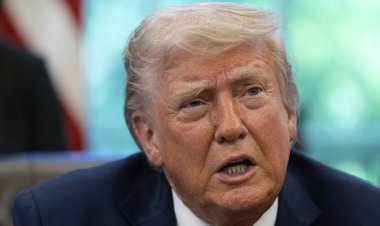'Microschools' May Become a Major Issue in School Choice Debate
Florida recently introduced a provision that simplifies the process for these small schools, often with fewer than 30 students, to become established. This change has received little attention so far.

Recently, state lawmakers supported easing regulations for creating these microschools, a move that is part of a broader education law now in effect. This provision, though not widely publicized, could serve as a model for other states aiming to enhance private school offerings.
The new policy, which relaxes zoning and land-use restrictions, marks another significant effort by the Florida GOP to expand school choice. This follows earlier measures that made scholarships accessible to all students seeking private education options, bypassing income restrictions.
Advocates of microschools believe this regulatory change could facilitate the development of numerous such schools in Florida, the nation’s third-largest state, and potentially across the country.
“This is the silent friction point that has existed for years that no one could figure out how to solve,” said Ryan Delk, CEO and founder of Primer, a microschooling organization operating 23 schools in Florida and Arizona, which lobbied for the law.
Microschools generally enroll fewer than 30 students and are often led by a single teacher, functioning in diverse locations from office buildings to housing developments. They can be managed by various entities including small businesses, co-ops, or private institutions.
The policy change in Florida, though appearing modest, allows private schools to operate in existing spaces like movie theaters and churches without needing local government approval.
This adjustment could substantially impact by providing private schools with easy access to thousands of buildings, thereby enabling new educational ventures while avoiding hefty rezoning costs.
“Microschools that we work with in Florida see the change as significant and one that will help new microschools open and serve their communities in meaningful ways,” said Don Soifer, CEO of the National Microschooling Center, in an email.
The exact number of students enrolled in microschools in Florida or nationwide remains unclear, but the trend is increasingly appealing to parents who prefer small class sizes and personalized education.
As of last year, an estimated 1 to 2 million students were attending microschools across the U.S., according to EdChoice, a school choice advocacy group based in Indianapolis. In Florida, a statewide group notes that there are over 250 small learning programs, many of which accept state scholarships averaging $8,000 per student for non-traditional public school education.
When contacted for comments, DeSantis’ office referred POLITICO to the Florida Department of Education, which did not respond.
Florida is among the few states easing restrictions on private schools, alongside Utah, which has also passed laws facilitating the creation of more microschools — a move that some opponents worry diminishes local community control.
Though Florida’s law does not explicitly mention microschooling, it allows private schools to utilize facilities that are libraries, community service organizations, museums, performing arts venues, theaters, cinemas, or churches under existing zoning rules, without requiring rezoning or special exceptions.
The law excites companies like Primer, which claims there are approximately 50,000 potential locations in the state for small learning environments.
“Often, zoning can be the biggest barrier to new microschools opening despite strong demand from families,” noted Soifer. Microschool proposals in states like Arizona have encountered regulatory issues over property dimensions and costs related to traffic measures.
During the 2024 legislative session, Florida’s zoning change was mostly unnoticed as it was embedded in a comprehensive education bill that also addressed local book challenges and restructured the state commission overseeing teacher disciplinary cases. However, it was noted by the Florida League of Cities, which represents municipal governments and opposed the policy.
Florida’s law will “prevent cities and counties from holding public meetings to approve rezoning these facilities for educational use and from requiring private schools to mitigate traffic impacts,” the group wrote in an opposition bulletin. “As a consequence, residents near these new schools would lack the opportunity to voice concerns or influence the location of new private schools.”
Primer views Florida’s legislation as a potential gateway to establishing thousands of new schools in the forthcoming years. Currenlty, Primer operates K-8 schools in Coral Gables, Fort Lauderdale, and Miami, but finding space remains a primary challenge for Delk.
Supported by investors like Sam Altman, CEO of OpenAI, Primer assists teachers running microschools with tasks like leasing classrooms, obtaining state approval, and student recruitment. Delk highlights that Primer selects the “top 1 percent” of teachers, paying them 25 percent more than district salaries and offering revenue share for student recruitment, treating them as “entrepreneurs.”
“We want to empower parents and teachers to be able to create this system that will serve their community the best,” Delk said.
The private school law change is Florida’s most recent move to broaden school choice. Participation in state-funded scholarships has surged to around 217,000 students since the Legislature opened voucher programs to all students, regardless of income, two years ago. This latest change affords private schools the same benefits as those in the state’s “Schools of Hope” program, aimed at facilitating new charter schools near underperforming public schools.
“Private schools can now expand and meet the overwhelming demand for space,” said Chris Moya, a Florida lobbyist who represented Primer, as well as charter schools and the state’s top voucher administration organization. “District schools and public charter schools already had this right. The Legislature is trying to level the playing field.”
States with comprehensive school choice policies, like Arkansas and Iowa, may be next to contemplate similar legal adjustments for microschools. However, Florida and Utah have acted first due to high demand for new educational options, according to Matt Frendewey, vice president of strategy with yes. every kid., an advocacy group for educational choice.
“Florida’s law refocuses, recenters the conversation around the educators who want to start a new schooling model and the families who want to access them,” Frendewey remarked.
Despite this legislative advancement, space issues for microschools persist.
For instance, Keystone Education Center in Vero Beach plans to open this fall with 16 students and two teachers, utilizing unused classroom space at a local church. Catering to students with autism and other learning challenges, it was founded by parents and teachers seeking more personalized support.
Although Keystone has found initial space, its leaders aim to expand to 75 students, a goal that exceeds their current capacity.
“We should be the envy of the town at some point,” said Danielle McLean, a co-founder of Keystone and its executive director. “But the problem we run into is we don’t have space to grow.”
Mathilde Moreau contributed to this report for TROIB News












